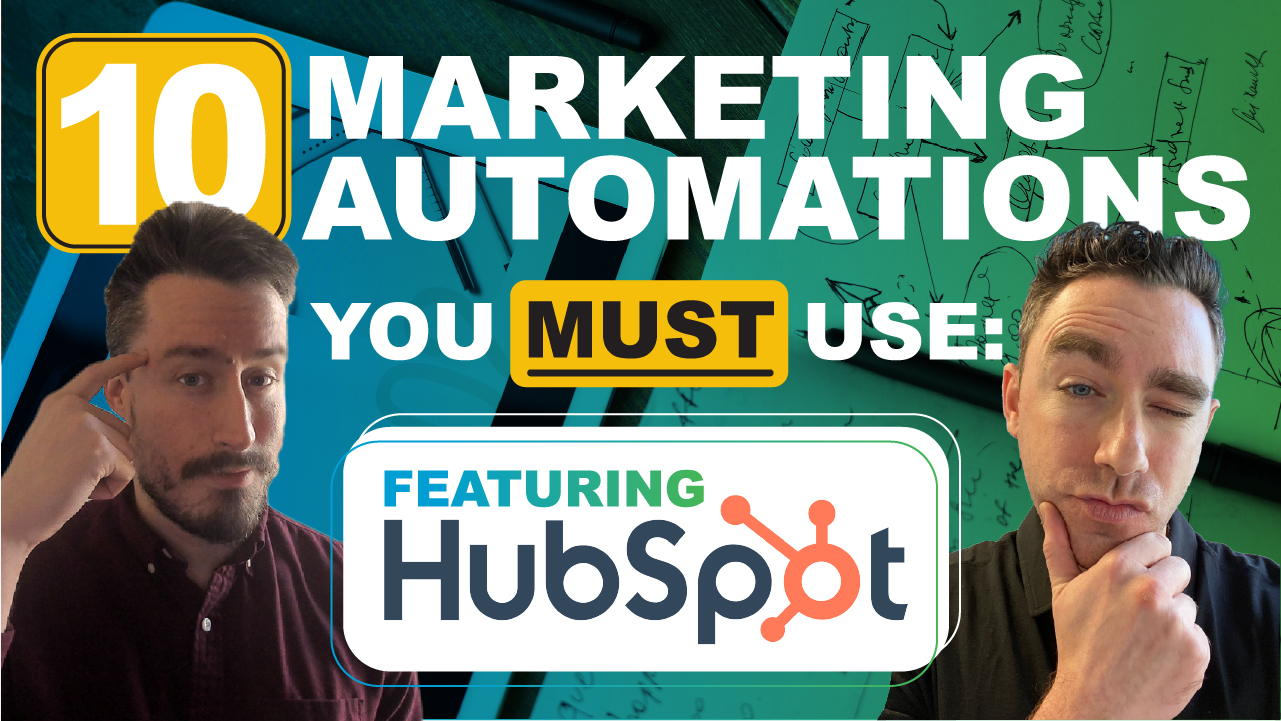
How to leverage the power of AI in your digital advertising campaigns
If you haven’t noticed, the robots have arrived一not the kind you see in movies, but the ones behind the scenes.
Over the past few years, Google, Facebook, and other large platforms have taken more and more control away from advertisers, giving it to automated systems instead. But that doesn’t mean marketers should succumb to robots entirely.
Advertisers should learn to thrive in the era of robots, training robots to do their bidding (literally and figuratively). Marketers who know the ins and outs of their business have the power to feed algorithms with the right data to target the right customers at exactly the right time.
Book a 30 minute call
Reserve 30 minutes with a strategist and get 30 hours worth of value.
The best part is that it doesn’t take extensive AI knowledge or know-how. In this piece, we’ll explain how AI works in digital marketing, why it’s important, and outline eight tips for leveraging AI in your campaigns starting today.
How does AI apply to digital marketing, and why is it important?
When people talk about AI and machine learning in the context of digital advertising, they are referring to smart bidding. Platforms like Google can gather and process far more data signals than the average person can in real-time, making AI-driven bids far more competitive.
AI models also learn from successes and mistakes, refining bidding strategies over time to fit individual business needs. And, unlike humans, machine learning algorithms are always on, meaning crucial decisions can be made 24/7, 365 days a year.
But better bidding isn’t the only reason to pay attention to AI. Google and Facebook have told advertisers to steer clear of manual CPC, hinting at its eventual sunset. So embracing AI isn’t just about being the first person to jump on new features; it’s about preparing your business for the future of digital marketing.
You’re not losing control; you’re setting the terms for success
Many marketers worry about giving up control to Google or Facebook’s models. But the reality is that these models don’t inherently know anything about your company, customers, or products一they can only guess based on the data they’re given.
So while you are letting Google or Facebook-created models make decisions for you, you’re also providing the data to drive those decisions on the front end. In addition, you’re setting the success parameters. If an algorithm can’t hit a certain conversion rate or CPA, it won’t spend more of your budget.
In other words, marketers act as AI managers. They give models resources to make intelligent decisions, set expectations for the outcomes of those decisions, and monitor models’ activity closely.
What are the benefits of using AI in digital advertising campaigns?
We’ve already discussed how AI can make marketers’ lives easier, but here are just a few of the many other benefits AI confers:
- Greater bang for your buck – AI’s primary appeal is that you get more out of your advertising dollars. Models are conditioned to hit your CPA and conversion goals, maximizing the chances of finding your best customers quicker.
- New opportunities – AI could also open your team up to things you would never previously have bid on. For example, you may never have done a display or discovery campaign for fear of junk traffic. But with the proper guard rail and budgets in place, you can try with more confidence and potentially open up a channel for driving new customers in the door.
- Time back – Eliminating the tediousness and time-consuming nature of manual bidding gives marketers far more time to spend on high-impact activities like talking to customers, spying on competitors, and writing awesome ads and landing pages.
- Competitive edge – Aligning with powerful, far-reaching ad platforms is a way to future-proof your marketing strategy. If you adopt AI strategies now, you’ll gain enough expertise to brainstorm creative ways to beat your competitors.
8 AI tips you can implement right now
You know why AI is so important in theory; now it’s time to put it into practice. Below, we share eight ways to enhance your digital marketing campaigns with AI.
- Review down funnel data – Even if AI and ML didn’t exist, keeping tabs on your down funnel data is one of the best ways to understand your campaign effectiveness. Without knowing what happened to your conversions downstream, you could be doubling down on campaigns that are essentially a waste of money. You want to be drawing in the highest quality leads that are most likely to convert into customers and stay loyal over time, even if they are more expensive to acquire.
- Switch to enhanced CPC – If you haven’t already, make the leap to enhanced CPC. It’s the least advanced form of AI but still takes conversion data into account when bidding on keywords.
- Set up conversion tracking – Conversion tracking takes more technical skills than the first two tips, but the payoff is high. Conversion tracking gives AI models specific signals and indicators to look for, strengthening your campaign performance over time.
- Broad match keyword targeting – We are fans of giving Google’s AI three to five-word keywords to match against. Broad matching targets folks based on both the keywords you provide and a range of other phrases that reflect the same or similar intent.
- Learn from the models – The results of AI-driven campaigns can reveal a lot about your prospects and what they are interested in. For example, we find it helpful to look at search queries and review new keywords these platforms bring in. Often, new keywords spark a new campaign idea or even a new audience to go after.
- Connect your CRM to Google Ads – CRM data is typically very rich, so why not feed that data directly to algorithms? Connecting your CRM to Google Ads can be relatively straightforward depending on which CRM you use. Doing so can give Google a better picture of the segments you want to target and what “quality” looks like.
- Leverage observation audiences – Google’s smart bidding strategies will look at observation audiences and cross-reference them with other data points they have amassed. Ultimately, these audiences help Google serve your ads up to people with higher intent.
- Maintain a robust negative keyword list – While Google is smart, it’s not a human, and sometimes it thinks two words are synonymous that truly aren’t. Keeping your negative keyword list updated limits the situations in which Google’s best guesses are way off base.
AI Mistakes to avoid
Sometimes knowing what not to do is even more useful than knowing what to do.
One of the biggest mistakes we see is improper conversion tracking. This may seem like a no-brainer, but the wrong setup can make or break your campaigns. We recommend periodically going to the conversions tab in Google Ads and ensuring that your account-level and campaign-level conversion settings are correct. You should also verify that Google is optimizing for the conversions you want by setting them as primary.
Another mistake we see is not selecting your conversion type carefully. Think hard about what action you are trying to drive and what that action is worth. Set conversion values high when the stakes are high and lower them when the action is relatively less important.
Another thing we see is a failure to maintain and update event and goal values. Sometimes tracking breaks or changes are made to your website that aren’t reflected in tracking. It’s a good idea to confirm that your goals and events are all still firing appropriately across all your platforms regularly.
Try our handy tracking debugger Chrome extension to audit what events you’re passing back to Google and Facebook’s AI.
Get and stay ahead of the AI curve
Whether you’re ready or not, AI is here to stay.
Google and Facebook have been explicit—AI is the train they’re riding into the future. And while that feels scary, it doesn’t have to be.
Thinking strategically about how AI can augment what you’re already doing is the key to success. Future strategists won’t be Google Ads experts who know a thing or two about business; they’ll be business pros who know Google Ads just enough to be dangerous.
So keep your skills sharp by signing up for our newsletter below and join our weekly Growth Clinics every Wednesday at 12pm EST. And if AI still sends chills down your spine, we’re happy to enlighten and empower you. Book a discovery call today.
Most newsletters suck...
So while we technically have to call this a daily newsletter so people know what it is, it's anything but.
You won't find any 'industry standards' or 'guru best practices' here - only the real stuff that actually moves the needle.







